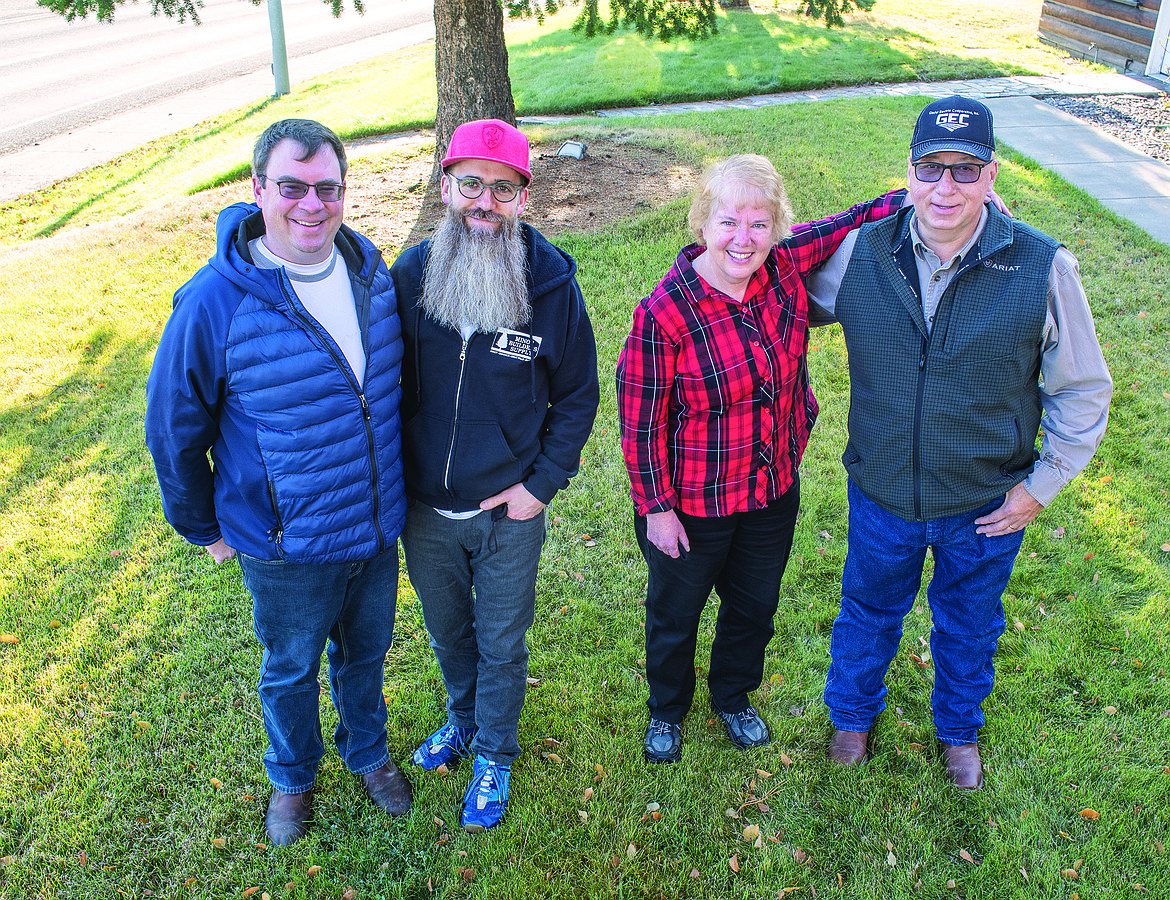The gift of life: Kidney recipients thankful for donors
Les Costel and Ty Shanks have a lot to be thankful this year. They both have new kidneys.
Costel got his kidney from a perfect stranger. Shanks from a good friend.
Costel, of Browning, works for Glacier Electric Cooperative in Browning. He discovered 21 years ago that he was born with just one kidney — something he didn’t even realize until he had some tests for his job some 21 years ago.
He did well on one kidney for decades, up until last year when it began to fail, and fail quickly.
Rural Montana Magazine, which features Co-op news from across the state, featured Costel and his family in a February 2019 cover story asking folks to consider donating a kidney to help Costel out.
Columbia Falls resident Janet Reindl read the story.
“My heart was touched,” Reindl said in a recent interview. The odds of Reindl being a match were long, but she got tested anyway.
So much for odds. She was a match.
Reindl was 66 at the the time. She named her kidneys Kiwi and Koala. On Nov. 5, 2019, she gave Koala to Costel.
“I’m back to work,” Costel said with a smile. Koala is working just fine.
Ty Shanks of Columbia Falls learned he had kidney disease in 2016 and eventually ended up on dialysis — a machine that cleans the blood of impurities like kidneys do. But the treatment wears a body down eventually and a kidney transplant was his only hope of a long-term cure.
Shanks is the manager of the Western Building Center store in Kalispell and is a co-owner of the company. He has type O negative blood, which makes it even harder to find a donor, as that blood type is rare; just 3% of the population has it.
But one day Shanks and friend Adam Smith were having a home brew in his garage when Shanks mentioned his kidney disease.
“If we’re a match, you can have one of mine,” Smith told him.
Smith had the tests done, and against the odds, they matched.
Smith went to work getting in shape before the surgery — running just about every day. On May 21, 2020, like Reindl and Costel, they, too, had the transplant surgery done at Virginia Mason Hospital in Seattle.
Everything went great.
“I felt 100 times better than being on dialysis,” Shanks said. “I felt super strong.”
All four say recovery from the surgery just took a few days.
For Shanks and Smith, leaving the hospital in May was a bit eerie — the city was locked down and there were also demonstrations going on.
“We never saw another car on the expressway,” Shanks said.
Both Shanks and Costel have to take anti-rejection drugs and a steroid. Doctors want them to lose weight, but the steroids make them hungry. They also have to be wary of catching coronavirus. The drugs suppress the immune system.
But other than that, they say things are going well and they’re back to living productive lives again. They urge anyone who can to consider organ donation. A live donation typically lives longer than a donation from a cadaver, but any gesture helps.
At any one time in the United States, about 100,000 people are in need of some sort of organ transplant, Reindl said.
Both Costel and Shanks are eternally grateful.
“I don’t know what to say to Janet,” Costel said. “I’m just so thankful.”
Shanks and Smith concur.
Donating your organs after death is easy to do — in Montana you can do it when you get or renew your driver’s license. You can also donate live tissue, such as a kidney, as well. To learn more, visit https://www.organdonor.gov/
But Reindl also urged folks who aren’t comfortable donating organs to consider donating blood, which is always in short supply.
“You can save someone’s life so quickly,” Reindl said.


